CIA Sponsored Terror, Civil Liberties, Death Penalty, Human Rights, Political Prisoner, Targeting Muslims, Truth to Power
Podcast: Play in new window | Download
Updates:
—


Drone Based Targeted Killings of U.S. citizens. Anwar Al-Aulaqi
Can the Obama Administration or any future administration use lethal force against US citizens who the executive office unilaterally determines as a threat to the nation? Not yet, but in recent government arguments, in the Anwar Al-Aulaqi case, the executive branch would have unreviewable authority to carry out targeted killings of Americans deemed to be enemies of the state. The ACLU and the Center for Constitutional Rights filed a lawsuit in the U.S. District Court for the District of Columbia on August 30, and the government filed its reply brief on September 25.
The ACLU and CCR were retained by Nasser Al-Aulaqi to bring a lawsuit in connection with the government’s decision to authorize the targeted killing of his son, U.S. citizen Anwar Al-Aulaqi, whom the CIA and Defense Department have targeted for death.
Pardiss Kebriaei:
- This will be our first chance to defend our motion for a preliminary injunction and respond to the government’s arguments. The sum and substance of the government’s arguments is that there should be no rule for the court at all in the question we presented. Whether the government has authority to execute one of its citizens without any kind of due process.
- There should be absolutely no judicial review at all. They have not got into the merits of why they believe they should have this authority. They assert the US is involved in a global war against Al-Qaeda, by virtue of the war the US has the ability to target any suspect of Al-Qaeda.
- Outside of Iraq and Afghanistan, the question of whether armed conflict exists, is a factual objective question. It’s not a matter of which the president declares and that the level of hostilities and the organization of groups in Yemen are just not such that they to the level of war.
- Anwar Al-Alwaqi is not Al-Qaeda, he is associated with Al-Qaeda.
- The US is not only claiming broad authority geographically but global authority in terms of any and all groups they deem somehow linked to Al-Qaeda.
- They’re claiming AUMF but they’re also claiming a very vague principle of self defense which is tricky. They are claiming self defense under article 51 of the UN charter.
- They’re going around criminal law and claiming un-reviewable authority to carry out global assassination. This is an escalation of what we saw under the Bush Administration with global detention authority, this is global killing authority.
- The authority could reach any citizen they deem a threat to national security. It could reach someone in the United States, the full contours of the government’s arguments would be that the decision to kill is for the executive to determine and that should be an un-reviewable decision.
- The mechanized disconnected nature of the killing is alarming, both by an accountability point of view and a moral point of view.
- The drone project is operated by the CIA and by a covert unit in the Department of Defense called the Joint Special Operations Command.
- Documenting them is incredibly hard, but yet you have the expansion of the war and killings, in this shadow war way. You have this parallel secret war being conducted by the CIA and JSOC largely through the use of unmanned drones. What we have here is the pre-determination of the ability to kill.
- There’s been a steady increase of rhetoric about Yemen and an escalation in the language of war.
Guest – Pardiss Kebriaei, she joined the Center Constitutional Rights in July 2007. Since then, her work has focused on representing men detained at Guantánamo Bay in their habeas corpus challenges, before international human rights tribunals, in diplomatic advocacy with foreign governments to secure resettlement for men who cannot return home, and in post-release reintegration efforts. Her clients have included men from Yemen, Syria, Algeria, and Afghanistan. Her work includes seeking accountability for torture and arbitrary detention at Guantánamo.
———————————-
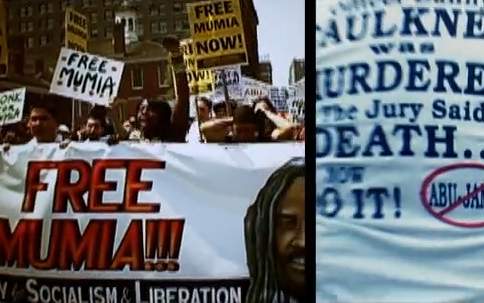
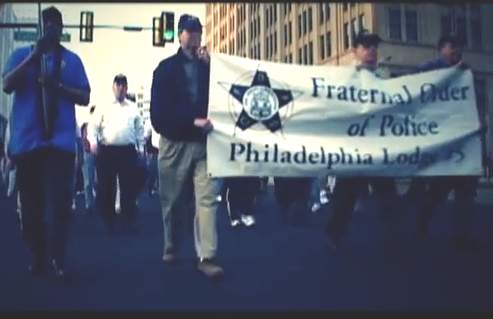
Justice On Trial: Documentary on Mumia Abu-Jamal
We’re pleased to have with us today the director Kouross Esmaeli of the new documentary Justice On Trial. The film focuses on the case of Mumia Abu-Jamal, one of the most scrutinized and contested legal cases in American history. Justice on Trial examines the facts of the case, the judicial bias, racial discrimination in jury selection, prosecutorial misconduct and tampering with evidence to obtain a conviction. The injustices and problems in Mumia’s case as many listeners know, are common within the criminal justice system in the United States.
Kouross Esmaeli:
- I tried to get an interview with the wife of the police officer who was killed on the night of December 9, 1981
- I thought it was important to show what drives that side I came to realize that Tigre Hill was making a film (about Mumia, titled Barrel of A Gun) that was propaganda for the other side.
- We had to make sure that film doesn’t become the voice of the nation.
- (Film includes photos 12 minutes after shooting occurred)
- The photos were discovered by an activist and scholar in Germany. He found them online, Michael met the photographer in the US, and realized there were 22 photographs from that night.
- They were offered to the prosecution, they refused.
- What the photographs show is incredible, they show a roving police hat.
- Officer Faulkner’s hat is placed in different spots on the crime scene.
- They show police handling the gun that was supposedly used in this crime. Handling it without gloves.
- There’s this push to kill Mumia and silence him physically. I’m interested to know what drives these people.
- For a screening in your area contact – – Kouross by email – – Kouross@bignoisefilms.org
Guest – Kouross Esmaeli, independent filmmaker and journalist.
—-
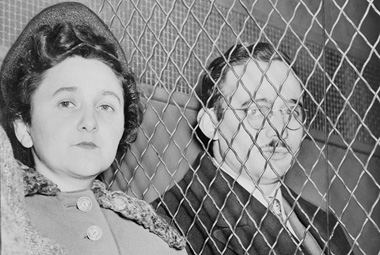
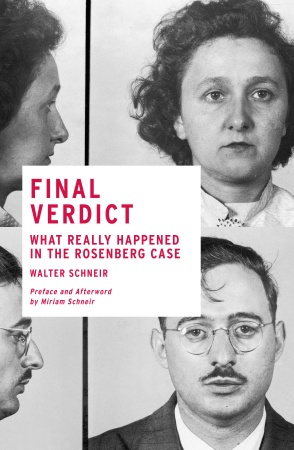
Final Verdict : What Really Happened in the Rosenberg Case.
In 1965, Walter and Miriam Schneir published Invitation to an Inquest, it was among the first critical accounts of the Julius and Ethel Rosenberg case. They were executed in 1953 for passing atom bomb secrets to Soviet Russia. In that book the Schneirs presented exhaustive evidence that key witnesses in the trial had changed their story after prompting from prosecutors. Their conclusion was, the Rosenbergs were innocent. Now after 30 years, Walter Schneir returned to the case with new evidence. Schneir had found that Julius Rosenber was marginally involved in the atom bomb spy ring and Ethel wasn’t involved at all. However they both lied about not knowing about espionage because of their earlier activities in World War II. All of this unravels in the Final Verdict : What Really Happened in the Rosenberg Case.
Miriam Schneir:
- The case began in 1950, 60 years ago. American cities were vulnerable to nuclear attacks. In that climate the Rosenbergs were arrested. The legal charge was conspiracy to commit espionage. During the trial, they were charged with stealing the secrets of the atomic bomb.
- The principle witnesses were Ethel Rosenberg’s brother, David Greenglass and his wife Ruth.
- David was in the Army and serendipitously was sent to Los Alamos, where the atomic bomb was being constructed.
- Julius was a spy during the wartime years. Ethel did nothing, she was not a spy.
- In a report by the Atomic Energy Commission, Greenglass was ranked as the least effective atomic spies back then. There was a lot of effort on the part of the Department of Justice to convict these people.
- This case is relevant today in a larger frame work.
- We can see that the Rosenberg case is like the Dreyfus case or the Sacco and Vanzetti case.
- It’s essential that leftists of each generation should keep that history alive.
- Now it’s Islam fundamentalism. That’s not to say there was no danger.
- You see the government use the courts to advance policies.
- On a personal level, Walter and I learned from the Freedom of Information documents we recieved, on the basis of the Meeropol suit, that while we were researching an Invitation to an Inquest, the FBI had been track our activities.
- We were just two writers who were trying to research a book, they were tapping our phones, and finally they placed us as well as thousands of others on an index of people who would be detained in the event of a national emergency.
- After the book was published, an FBI memo, directed that the book should be smothered and forced out of the public eye.
Guest – Miriam Schneir, editor of Feminism in Our Time: The Essential Writings, World War II to the Present and Feminism: The Essential Historical Writings. In addition to Invitation to an Inquest, she is also the co-author of “Remember the Ladies”: Women in America, 1750–1815.
Walter Schneir, a freelance writer on law, politics, and science. He is the co-author, with his wife Miriam Schneir, of Invitation to an Inquest, long considered the definitive book on the Rosenberg case. He is also the editor of Telling it Like it was: The Chicago Riots, an early account of the 1968 Democratic Convention. He died in April 2009 soon after completing this work.
——————————————————————————————
Criminalizing Dissent, Death Penalty, FBI Intrusion, Green Scare, Human Rights, Prison Industry, Supreme Court, Surveillance, Truth to Power
Podcast: Play in new window | Download
Updates:
———-
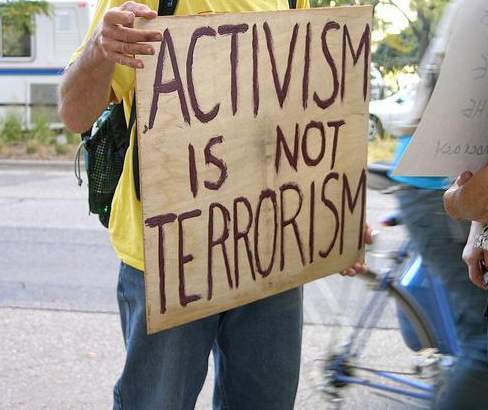

Nationally Coordinated FBI Raids Minnesota/Chicago
Last week the FBI raided six homes in Minneapolis and two in Chicago allegedly searching for links to terrorism. The Minneapolis raids targeted anti-war activists among them, Jessica Sundin, and Mick Kelly. They were key organizers of the big march on the first day of the RNC in 2008. In one Minneapolis home, FBI agents arrived with warrants, searched every room, attic and basement, looking through CDs DVDs, books, and photos. Passports, travel and phone records were among items seized from the homes. The FBI issued subpoenas for the peace activists to appear before a Grand Jury in Chicago on October 12. FBI’s search warrants indicate agents were looking for connections between local antiwar activists and groups in Colombia and the Middle East. NLG HOTLINE – 888-654-3265
Jim Fennerty:
- We’re putting a group of lawyers together from the National Lawyers Guild. We’re speaking to our clients right now about what a grand jury is, how it functions, and they have a right to refuse to testify at a grand jury or not. A total of 12 people were served with subpoenas.
- Humanitarian Law Project decision emboldens the government to push the envelope and see what they can get away with. I have not been told that anyone is a target, and we’re concerned about what that means.
- Technically the Attorney General’s office is not suppose to issue a subpoena to a target unless they get a higher authority to do that. Historically a grand jury was supposed to be citizens coming together to determine if charges should be filed criminally against somebody.
- Now it’s pretty much a rubber stamp for what the prosecutors want. People should be very concerned about going there, because what you say can be twisted around.
- Most cases, people can say they don’t want to testify at a grand jury, they’re going to exercise their fifth amendment rights against incrimination. However, if they offer you immunity and you refuse to testify, you can be taken to a judge, they’ll read the questions to the judge, and ask you to answer them.
- If you refuse to answer them then a judge can hold you in civil contempt and you can be incarcerated for the length of the remaining time of the grand jury. The government is not showing us all their cards, we don’t know where they’re going with this.
- Regarding activism: I’ve seen some unity here I’ve never seen before in my life, where groups that don’t get along, are now rallying around them.
- Do not speak to federal agent, do not lie to a federal agent. National Lawyers Guild Issues New Report on Policing of Protests
Guest – Attorney Jim Fennerty, attorney, activist and National Lawyers Guild member. Jim has been handling activist cases for 38 years.
——-

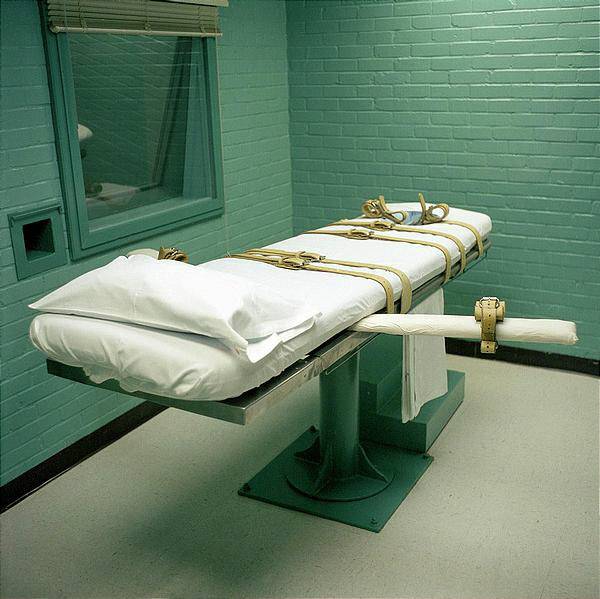
Death Penalty Cases -Virginia / Georgia / California
In late 2009, The American Law Institute which created the intellectual structure for the current capital justice system for nearly 50 years, essentially announced that its project has failed. The New York Times, in one article wrote the institute’s move represents a tectonic shift in legal theory. The article also points out that capital punishment was plagued by problems including racial disparities. We continue to see these types of problems in 3 recent death penalty cases in Virginia, Georgia and California. In Virginia, Teresa Lewis, a grandmother was the first woman to be executed in that state in nearly 100 years. Last week Teresa Lewis was given a lethal injection at 9PM in Greensville prison. Teresa was convicted of hiring two gunmen to shoot her husband and stepson to collect on their life insurance policy. Both gunmen were sentenced to life without parole. Attorneys argued that the court consider a key piece of evidence on Teresa’s behalf. That evidence was a letter from one of the gunmen who killed himself in jail in 2006, in which he claimed full responsibility for the murder plot and suggests he pushed Lewis into it. Lewis also had an IQ of 70.
Last week in a Georgia death penalty case, Brandon Joseph Rhode was found in his cell with his arms and neck slashed days before his scheduled execution by lethal injection. According to reports, his lawyers have pleaded clemency, arguing he suffered brain injury from alcoholism and because his mother took drugs during pregnancy. If executed, he will be the 25th person put to death by the state, the last one was in June. Rhode and an accomplice were sentenced to death for murdering an 11-year-old boy, his 15-year-old sister and their father during a botched robbery in 1998.
In California, a federal and state court judge refused death row inmate Albert Greenwood Brown’s request to block his scheduled execution. Brown and another death row inmate have filed a lawsuit challenging the state’s new lethal injection regulations,saying the procedures were improperly adopted. State procedures have since been revised after a federal judge halted the death penalty in California amid concern that it’s method lethal injection amounted to cruel and unusual punishment.
David Michaels:
- These are two horrible executions. Teresa Lewis had an IQ of 72. She was executed after Governor MacDonald refuse her clemency requests. The judge said she was the head of the serpent in this particular case and he decided horribly to have her executed.
- There’s no deterrent for people with the IQ of 72 or for someone with an IQ of 150. This murder happened in 1992, this execution happens in 2010.
- There are about 3 dozen states that have capital punishment laws. In California, one of the drugs they use for lethal injection has expired and they can’t get anymore.
- LINKS – NCADP / Death Penalty Information Service
Guest – Attorney David Seth Michaels. David has represented clients for 30 years, clients such as prison inmates in Mississippi and Tennessee. He’s worked with Brooklyn Legal Services B and with the Federal Defenders Service Appeals. He is also a novelist, has his own practice in New York. David Michaels’ Blog
—-


Circuit Court of Appeals Throws Out Nigerian Claims Against Shell Oil
It is now up to the Supreme Court to decide if corporations could be held liable in U.S. courts for violations of international human rights law. Recently, a U.S. Appeals Court dismissed a case against Royal Dutch Shell in which the oil company was accused of helping Nigerian authorities violently suppress protests against oil exploration in the 1990s. One judge on the three-member appeals court panel wrote a strong dissent of the majority opinion, calling it “a substantial blow to international law.” In a past interview with attorney Peter Weiss, Peter explained how a 1789 U.S. statute Alien Tort Claim was used to hold multinational corporations accountable for human rights crimes. The case was brought by families of seven Nigerians who were executed by a former military government for protesting Shell’s exploration and development.
Maria LaHood:
- This was a class action brought by the Ogoni people against Shell parent companies and Nigerian subsidiaries.
- They brought the case because Shell had been complicit with the military dictatorship in the nineties.
- They were detaining, torturing and killing people to oppress the grassroots opposition movement to Shell’s environmental degradation. Shell Oil is the US company.
- Basically, two judges went out of their way to find that corporations can’t be held liable for international human rights violations. The result is that corporations can profit from killing and torturing and can’t be required to compensate the victims.
- Hopefully this decision won’t stand. This is the first Circuit to rule like this.
- Unfortunately I think corporations are going to be submitting this decision in their own cases around the country. Hopefully, that won’t be successful. As it stands the decision applies to the Second Circuit, New York, Connecticut and Vermont.
- Even if this decision stands, the court left open and confirmed you can sue individuals. Even here we can sue CEOs and directors of corporations.
Guest – Attorney Maria LaHood has worked on the case Wiwa v. Royal Dutch/Shell, for the torture, detention and execution of Ken Saro-Wiwa and other human rights activists and protesters in Nigeria. Maria LaHood joined the Center for Constitutional Rights (CCR) in 2004. She specializes in international human rights litigation, seeking to hold government officials and corporations accountable for torture, extrajudicial killings, and war crimes abroad.
————————————————————————————————-
Afghanistan War, Civil Liberties, Criminalizing Dissent, Death Penalty, FBI Intrusion, Human Rights, Prison Industry, Supreme Court, Surveillance, Targeting Muslims, Torture, Truth to Power
Podcast: Play in new window | Download
Updates:
—
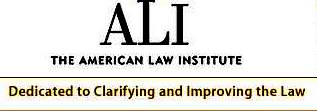
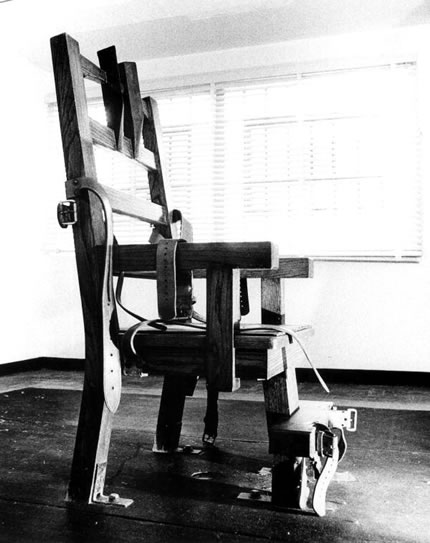
The Death Penalty Loses Support of The American Law Institute
In late 2009, the American Law Institute, which created the intellectual structure for the current capital justice system for nearly 50 years, essentially announced that its project has failed. The American Law Institute or A.L.I. is made up of around 4 thousand judges, lawyers and law professors, streamlines law and model codes to provide coherence in a federal legal system that is usually taking a varied approach. In a 1962 Model Code, the best legal minds of the institute framed a way for the death penalty to be carried out fairly, it then was re-instated in 1976. Now, the same people disavow the structure saying there is no fair system of capital punishment. The New York Times, in one article wrote (quote) the institute’s move represents a tectonic shift in legal theory. The article also points out that capital punishment was plagued by problems including racial disparities.
David Seth Michaels:
- American Law Institute, the intellectual group that tries to cobble together federal law in the United States including capital punishment. The capital punishment rules that they invented fifty years ago, have been the groundwork on which everything has happened since.
- So, it comes as a bit of a shock that fifty years later, they say “oh, oh.” It doesn’t work. It won’t work, we can’t make it work, so we’re going to fold up our tents. We won’t have anything else to do with it.
- Unworkable elements in the system: They’re troubled by the racial disparity on who gets executed, there’s tremendous disparity that is regional across the U.S. The prospect of capital punishment is ridiculously expensive. There’s risk of executing innocent people and politics of appointed judges who wantonly convict.
- It’s one of these circumstances that it is irreparably falling apart, broken. Everywhere you turn you find horrendous errors, egregious discrimination.
- The murder rate is higher in places where they have the death penalty than places where they don’t have the death penalty. Public support for the death penalty has been slowly and gradually decreasing.
- In the early 70s I became concerned about conditions in the prisons and mental hospitals in Tennesee and Mississippi. This is after the restoration of the death penalty in 1976.
- I can’t wait for the day that capital punishment is abolished. This system can’t die soon enough. You got nobody supporting the death penalty on an intellectual basis.
- National Coalition Against the Death Penalty.
Guest – Attorney David Seth Michaels. David has represented clients for 30 years, clients such as prison inmates in Mississippi and Tennessee. He’s worked with Brooklyn Legal Services B and with the Federal Defenders Service Appeals. He is also a novelist, has his own practice in New York.
—————————-

Lawyers You’ll Like: Jim Lafferty Part II
We’re delighted to have back with us attorney Jim Lafferty for the second half of our Lawyers You’ll Like series. He is the Executive Director of the National Lawyers Guild in Los Angeles and host of The Lawyers Guild Show, a weekly public affairs program on Pacifica radio sister station KPFK, 90.7 FM in L.A.
He has served as a chief officer of, and spokesperson for, various national anti-war coalitions, including the National Peace Action Coalition, the anti-Vietnam War coalition that organized the largest protests during that war; the National Coalition for Peace in the Middle East; and, the National Campaign to End U.S. Intervention in the Philippines. In the 60s and 70s, his law firm, Lafferty, Reosti, Jabara, Papakian & Smith, represented virtually all of the left political movements in and around Detroit, Michigan, during which time he became one of this nation’s leading experts on Selective Service law and military law.
In the early 80’s, Mr. Lafferty founded and chaired the largest A.C.L.U. Chapter in the State of Michigan. In New York City, in the late 80’s and early 90’s, he traveled the world organizing on behalf of the labor rights of merchant seafarers. During this time he also taught a course at the New School for Social Research, entitled, Vietnam: The War at Home and Abroad. More recently, Jim Lafferty was the Coordinator of the L.A. Coalition to Stop the Execution of Mumia Abu-Jamal, as well as a member of the national steering committee of the Campaign to Stop the Execution of Mumia Abu-Jamal.
Jim Lafferty:
- The man who was presented to me as my uncle, when I was sixteen he died, my mother acknowledged that he was my father. A friend of mine, she was a white nurse and she was married to a white school teacher and had a 3 year old daughter.
- She divorced that man and married a black surgeon. Her mother and former husband wanted custody feeling it was inappropriate for child to be raised in biracial home. George Crockett was one of the lawyers in the National Lawyers Guild in Michigan, took the case only if I clerked and read every opinion on domestic relations given down by the Michigan Supreme Court.
- We lost that case, and I continued working with that firm. They made a movie about that called “One Potato, Two Potato”
- The firm had been lawyers for UAW. I had gone down South to work with the lawyers guild in 1963, I was taking depositions for the Freedom Democratic Party. That’s where I met Mary Robinson.
- Bill Kunstler and Arthur Kinoy / Bill Kunstler’s book (1966) Deep In My Heart
- Michael Smith: Jeff Haas says Fred Hampton had Bill’s book, Deep In My Heart on his bed.
- When you finally take a stand, even though it leads to your incarceration and apparent lack of freedom, you’re finally free. Anti-war movements: Some friends of mine ran as peace candidates just to bring up the question of the war. We ran the entire campaign for 3300.00. Including 10 small billboards. Later we put together the Detroit Coalition to End the War in Vietnam Now.
- I wasn’t representing people anymore, but as the head of this coalition, you were doing public speaking, and getting an appreciation for what the power of people could do. To the credit of those lawyers who were winning those victories, even then they were saying to younger lawyers like me, but the real important thing is what goes on in the streets.
- Los Angeles Chapter of the National Lawyers Guild, – Labor Movement is vital. The anti-war movement is vibrant. You can’t blame the young activists for not knowing history, because nobody’s bothered to teach them. I’d like to see the movement coalesce around a meaningful left socialist third party.
- On the issue of the war, we’re worse off than we were with Bush.
- Healthcare plan: boondoggle for insurance companies, if you insure people who haven’t been insured, the profits of insurance companies aren’t gonna go down, you and I will pay more. Whereas the government should be paying more. NY Times article: putting aside the public option, you get past it by not dealing with it.
Guest – Attorney Jim Lafferty, Executive Director of the National Lawyers Guild in Los Angeles and host of The Lawyers Guild Show, a weekly public affairs program on Pacifica radio sister station KPFK, 90.7 FM in L.A.
————————————————————–
Civil Liberties, Death Penalty, Habeas Corpus, Human Rights, Supreme Court, Surveillance, Torture, Truth to Power
Podcast: Play in new window | Download
Updates:
————
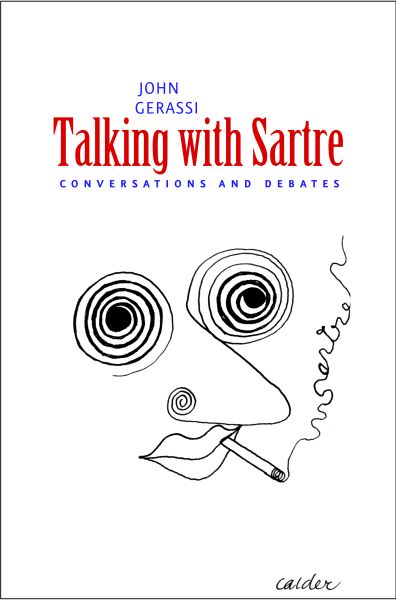
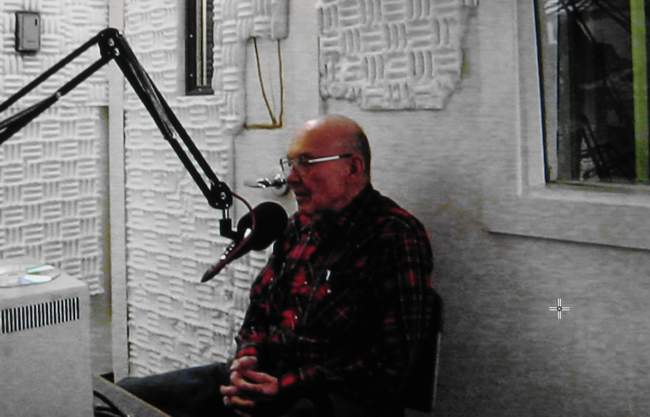
Talking With Sartre: Conversations and Debates
Professor John Gerassi, author of the recently published book titled – Talking With Sartre: Conversations and Debates joins hosts in studio. As a child, Gerassi’s parents had become close friends with the French existentialist philosopher, playwright, and novelist, Jean Paul Sartre. Later in his life, Gerassi conducted a series of interviews in the early 70s. These interviews are now edited into book form and as one review states, – quote – it has produced this revelatory and breathtaking portrait of one of the world’s most famous intellectuals.
The brings into to focus Sartre’s thinking on the Spanish Civil War, World War II, and the disintegration of colonialism, it also reveals how Sartre has wrestled with the apparent contradiction between his views on freedom and the influence of social conditions on our choices and actions.
John (Tito) Gerassi:
- My father was an artist and said ridiculous things like I don’t care if my son starves or my wife starves, first I paint.
- This appealed to Sartre who said in effect the same thing as a man of letters.
- Sartre became fascinated by my father. My father refused to join the OSS / CIA
- Gerassi to Sartre: You have a problem uniting the idea of free choice that you have in existentials because you begin with the I, to the Marxist situation which is a class derivative to which you want to align. I don’t see how you can align them.
- After a series of criticisms to this dichotomy, Sartre said, “This kid’s brilliant.” And so I became part of the family.
- Sartre always supported counterterrorism. Those who fought the establishment’s terrorism.
- Sartre’s anti-position has always been consistently correct.
- He opposed Ridgeway when Ridgeway took over NATO. Get your base out of France.
- No country is free with a foreign base on its territory. If you get rid of Ridgeway don’t put in a European general.
- During the Algerian War, the magazine that Sartre basically created called Modern Times, supported the Algerians right from the beginning.
- It supported sedition, that was a step further than any lefty in France.
- Supporting sedition is one thing, but they actually supported it in action.
- They were called the suitcase carriers, they gave medicine and ammo to Algerians in suitcases.
- The editor in chief of Modern Times assembled 120 intellectuals and produced the Declaration of 121.
- It included Sartre and existentials but also the Catholic left and notable communist intellectuals.
- That began the split in the communist party.
- In Algeria, the communist party there was in favor of the Algerian revolution.
- Sartre : Never judge the powerless by the same criteria that you judge the powerful.
- That means you support the Palestinians, and you praise the suicide bombers because you judge them with a different criteria than Israelis who have tanks, airplanes etc . .
- Sartre interpretation: The fact that he (Ft Hood shooter) is a member of a dominated class, and he is rebelling against the dominating class. He is perfectly justified in what he’s doing.
- Sartre: The trouble with all revolutions is they give up too soon.
- He did go to all sorts of places and because he was Sartre, he got to see the leaders of Russia and China, the only influence where he was pleased with contact was Che Gueverra.
- Supporting the early action of the Palestinians: When Israel subjugates the Palestinians, takes away their lands. . I’ve always supported counterterror against established terror.
- Marxist – Group Infusion – people briefly connecting, moving from I to we.
Guest – Professor John Gerassi, once an editor at Time magazine, then at Newsweek, who obtained his PhD at LSE, is a long time civil rights and anti-war militant. He is the author or editor of ten books and scores of articles and pamphlets published on both sides of the Atlantic. He is currently Professor of Political Science at the City University of New York.
———————————————–
Civil Liberties, Death Penalty, Guantanamo, Habeas Corpus, Human Rights, Impeachment, Supreme Court, Targeting Muslims, Torture, Truth to Power
Podcast: Play in new window | Download
Host Updates:
—
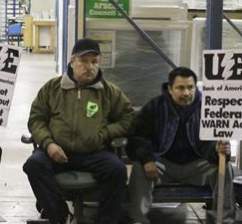
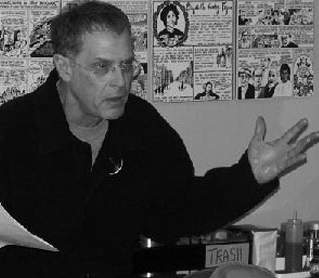
Sit In Victory at Chicago’s Republic Windows and Doors Plant
Last wee, angry laid off workers from Republic Windows and Doors agreed to leave the closed Illinois plant they’ve occupied in protest for six days. The workers accepted a deal that will give each of them about 6 thousand dollars, accrued vacation time and two months of helathcare coverage. About 1.75 million will be put into an escrow account to be supervised by the worker’s union.
Paul Buhle:
- Why stand outside where you slug it out with cops and scabs while you can be inside defending your job.
- The sit down strike goes all the way back to the Wobblies in 1907
- We have entered a new era, the nation has acquired more political oxygen than it has in a long time.
- There’s a spirit of empowerment that people feel they have to change the situation immediately around them.
- In the way of occupying universities, we can move things much better than those in charge with their foot upon us.
- Now is the time to develop those abandoned factories into living spaces, so they don’t become targets of firebugs.
Guest- Paul Buhle, senior lecturer at Brown University, a historian of American radicalims., a former member of Students for a Democratic Society and author of many books including images of American Radicalism. Also, Che, A Graphic Biography, and Isordore Duncan, a graphic biography by Sabrina Jones.
—
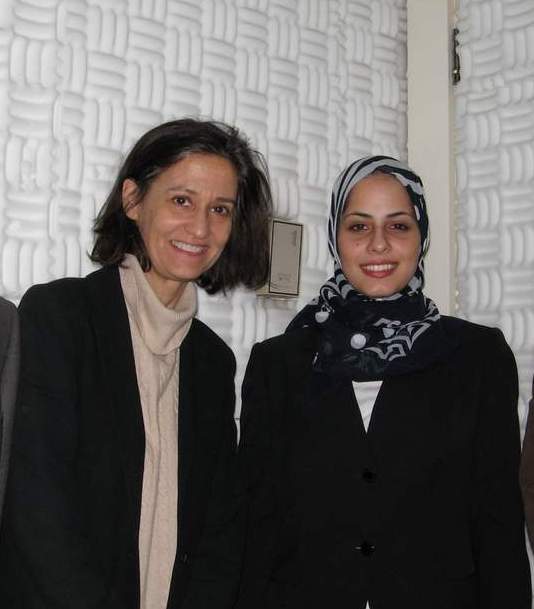
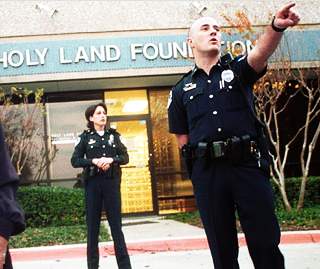
Verdict Against Holy Land Charity Could Have a Chilling Effect on the Muslim Community
Last month, a jury in Dallas, Texas found five Palestinian men guilty of more than 100 charges in the nation’s largest terrorism financing trial since 9/11. We talk with Laila Al-Arian, a Washington based journalist, who recently wrote a powerful Alternet article about this case and its impact on Muslim charities.
As many listeners may know, Holy Land was the largest Muslim charity in the United States, the the Bush administration shut it down after the September 11th attacks, and arrested five officials from the charity. In her article Al-Arian describes how the prosecution use unrelated video of suicide bombers to emotionally sway the jury. We’re later joined by Linda Moreno, a defense attorney in the case.
Laila Al-Arian:
- One of the witnesses (in this recent case) was an expert witness, he was a Shin Bet agent.
- The way the US government is trying to prove that these Zakaat Committees are funding Hamas is through the testimony of this Israeli witness. The testimony can’t be authenticated.
- The first time in a US court room that an expert witness, not a fact witness, testified under a pseudonym.
- How do you detect perjury, or how does the defense cross-examine without background.
- Expert witness lied to the jury about the Zakat committees being tied to Hamas
- What you’re really doing is prosecuting an Israeli Palestinian conflict in an American courtroom.
- For Muslims giving charity is a religious obligation.
- There will be an appeal on the grounds of the expert witness Shin Bet agent.
- Joe Lieberman and George Bush commented on the verdict of this case.
- All this does is punish people who are suffering, and punishing those who want to help them.
Linda Moreno:
- The government began its exhibit with a photograph of a bombed out bus, which had nothing to do with the accused in the Holy Land case.
- They also showed video of children doing skits, an art form that is a result of culture under occupation.
- Children in the US get to play violent video games, but they get to turn that off and go back to the safety of their home, go into your bedroom and shut the door. When you’re a Palestinian child, you don’t have that luxury.
- We know because we proved in both trials, that the US Government through USAID and other organizations was giving to the exact same Zakat Committees that were at issue in the indictment of this case.
- And the notion that you have to vet the recipient of charitiable donations, I believe is un-American.
- There’s just something wrong about criminalizing humanitarian aid. Charities under fire.
Guests – Laila Al-Arian, a Washington DC based journalist. Linda Moreno, high profile defense attorney.
—-
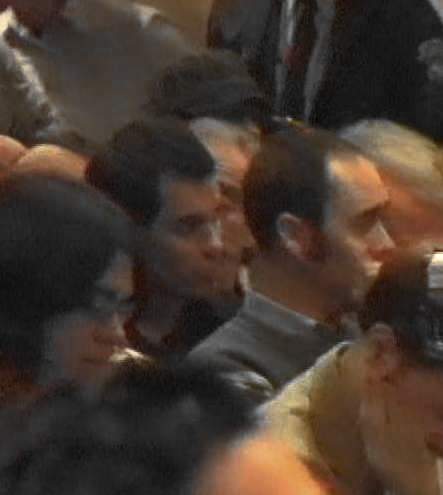
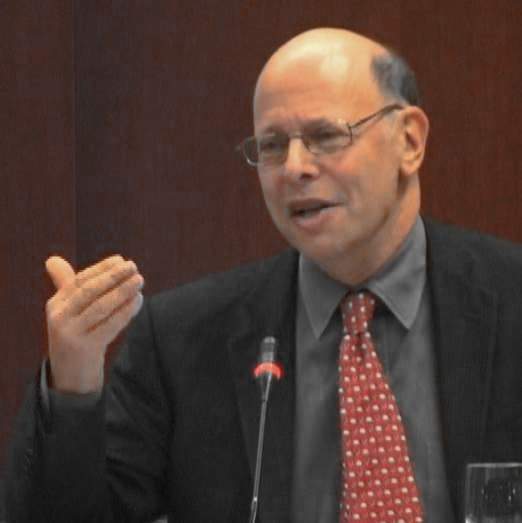
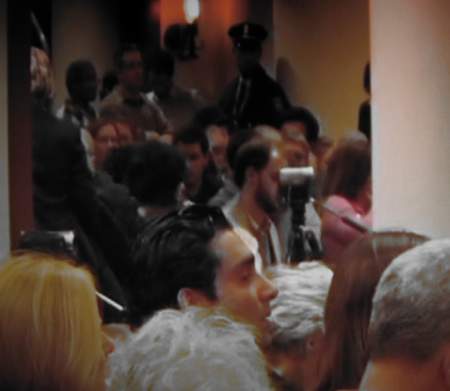
Harpers Magazine Panel: Justice After Bush: Prosecuting an Outlaw Administration
We hear from our own Michael Ratner President, Center for Constitutional Rights. The event discussed methods available to a democracy to prosecute high officials in the Bush Administration and responded to Scott Horton’s Harper’s Magazine cover story called “Justice After Bush: Prosecuting an Outlaw Administration.” We will hear more from the other speakers in the coming weeks.
- Elizabeth Holtzman, Author, The Impeachment of George W. Bush
- Scott Horton, Contributing Editor, Harper’s Magazine
- Jerrold Nadler, Chairman, House Subcommittee on the Constitution
- Antonio Taguba, Major General (U.S. Army Ret.)
Censorship, Criminalizing Dissent, Death Penalty, Guantanamo, Habeas Corpus, Human Rights, Military Tribunal, Prison Industry, Torture, Truth to Power
Podcast: Play in new window | Download
Updates:
—
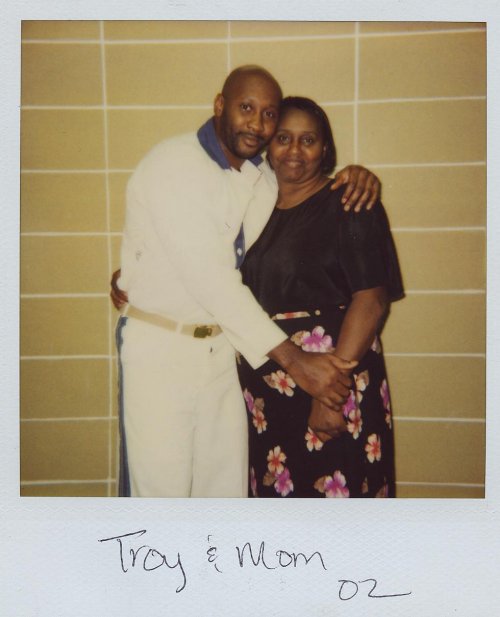
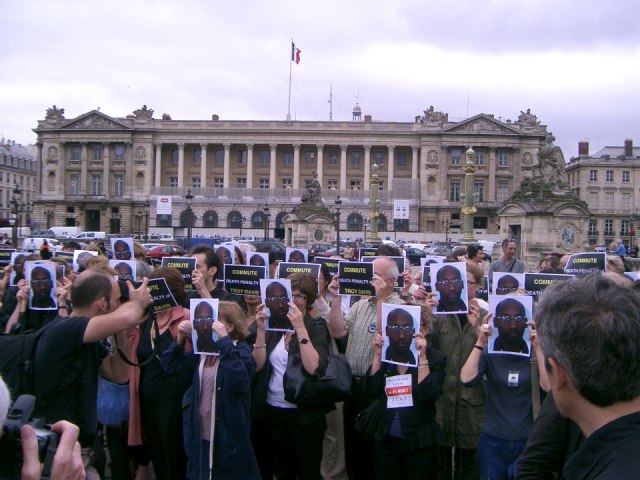
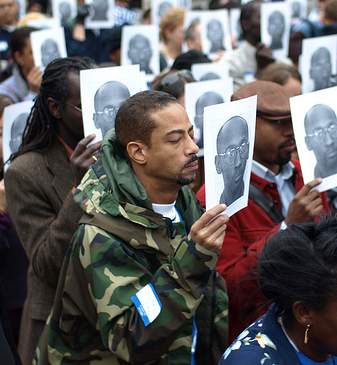
Stay Issued In Case of Troy Davis
Monday, October 27 was the day set for the execution of Troy Davis. A third stay has been issued by the U.S. Court of Appeals for the 11th Circuit. A 3 judge panel ordered attorneys to draft briefs that address whether Troy Davis can meet requirements for a next round of appeals. Attorneys have 15 days to file briefs.
Two weeks ago the Supreme Court refused to hear Troy Davis’ death penalty appeal, despite broad out pouring of support from former President Jimmy Carter, the European Parliament, Archbishop Desmond Tutu, to Jessie Jackson Jr. and this list goes on.
Lawyers Launch New Appeal Effort
Guest – Jessie Cohn with the Death Penalty Abolition Campaign Amnesty International USA
—
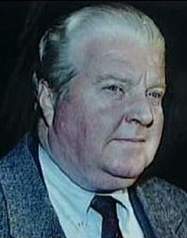

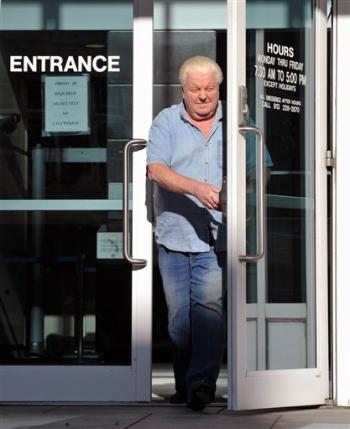
Former Chicago Police Commander Jon Burge Arrested
Former Chicago Police Commander Jon Burge was arrested last week near Tampa Florida on charges of obstruction of justice and perjury. The sixty year old retiree was picked up in his Apollo Beach home for allegedly lying about whether he tortured suspects in Chicago decades ago. According to People’s Law Office Attorney Flint Taylor, torture techniques included electric shocks and dry submarino, (suffocating with bags)
Under Seventh Circuit law if there’s a conspiracy to cover up the evidence in a civil case to show fraud then you can bring the case again. The People’s Law Office brought the case in 2005 and the city of Chicago refused to settle the case while pumping hundreds of thousands of dollars in that case. Flint Taylor says the city has spent over the 10 million dollars in aiding the defense of Commander Jon Burge.
Guest – G. Flint Taylor, attorney at the Peoples Law Office.Taylor, a graduate of Brown University and Northwestern University School of Law and a founding partner of the People’s Law Office.
—-
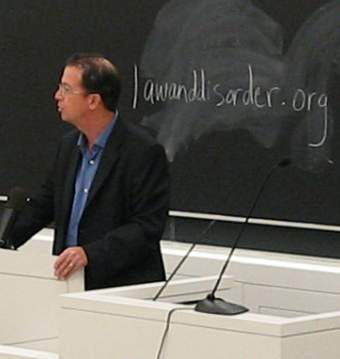
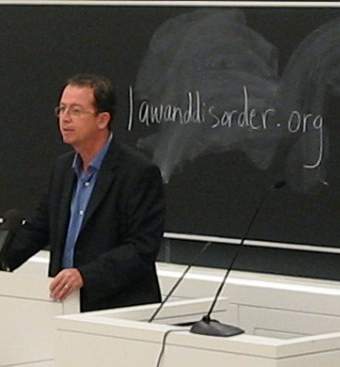
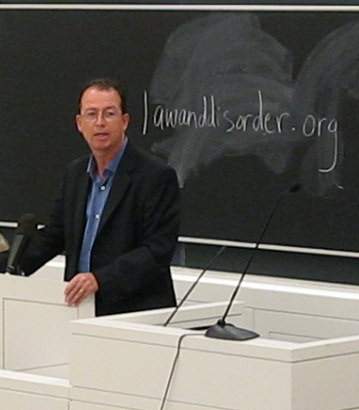
Luis Posada Carriles: A Tribunal
We hear the last of the speeches from this tribunal. Brian Becker, Director, A.N.S.W.E.R. Coalition.
From the New York Daily News: “It took years, but he is finally going to be charged in the U.S. for his crimes – even if only symbolically. It will occur here, in New York, when a tribunal composed of scholars and human rights activists take up the case of international terrorist Luis Posada Carriles, a man who is responsible for a long list of murderous attacks.
Posada, though, is a very lucky man. Despite his dark history, Posada remains free to roam Miami’s sunny streets and happily lives at home with his family. His rap sheet is long and deadly. A convicted terrorist in two countries – he escaped Venezuela and was pardoned in Panama – Posada is considered the mastermind behind the 1976 bombing of Cubana Airlines Fight 455, which killed the 73 passengers on board, including the Cuban national fencing team. He is believed responsible for a string of hotel bombings in Cuba, resulting in the death of Italian tourist Fabio diCelmo. But these are only two examples of his treachery. Posada later boasted about the diCelmo killing in a New York Times interview, which should give everybody a clear idea of what kind of person this man is.
Inexplicably, the Justice Department has refused to classify the former CIA operative as a terrorist. The reason may have to be found in Posada’s long and extensive ties with the CIA and several other nation’s intelligence agencies.â€

















